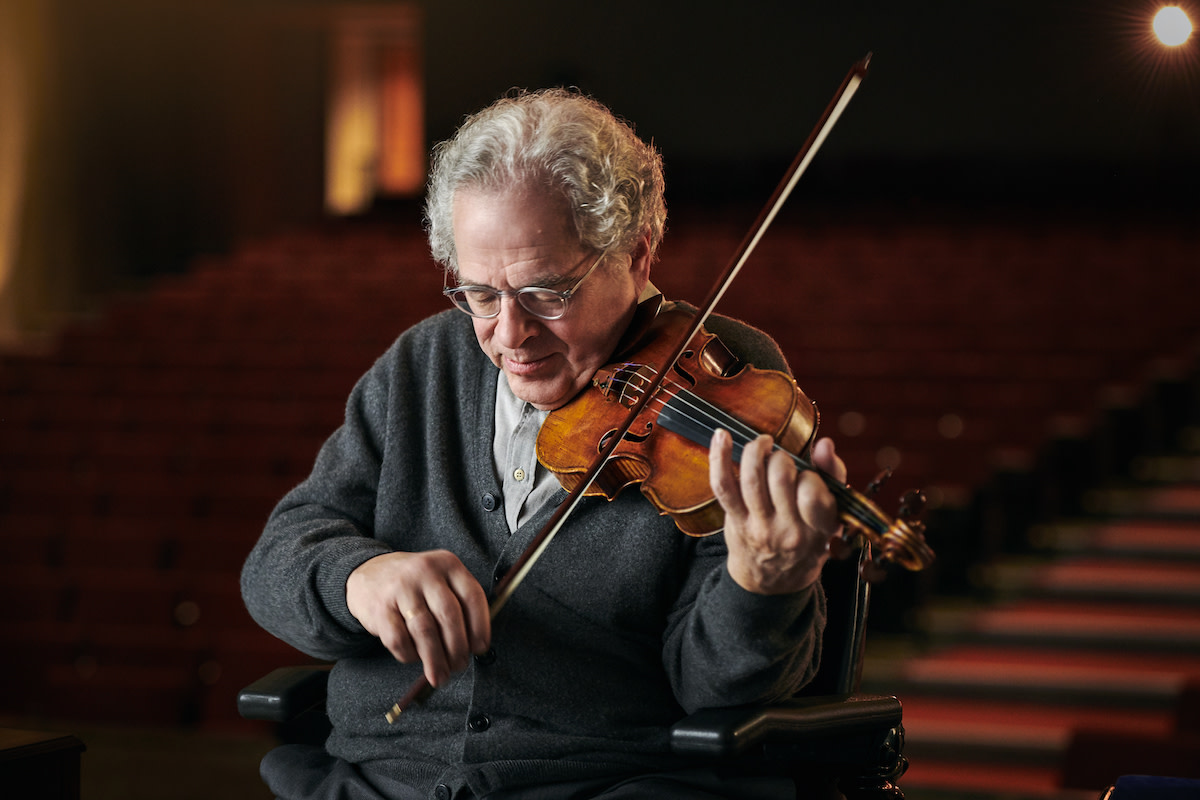Violinist Itzhak Perlman’s Tips for Memorizing Music: Learn How to Memorize Music Faster
Written by MasterClass
Last updated: Sep 24, 2021 • 4 min read
If you’ve ever seen a virtuosic musician perform live, you may have been impressed by two things. The first is technique: great musical performances require some combination of manual dexterity, breath control, fluid rhythm, and performance flair. The second might be the fact that the musician was playing from memory. It’s one thing to be able to play virtuosically—but memorizing music is a whole skill unto itself.
Learn From the Best
What Is Memorization in Music?
Memorization in music simply means being able to perform a piece of music without looking at a score, lead sheet, or some other form of sheet music.
Memorization is not to be confused with improvisation, such as in the solo sections of a jazz tune. Improvisation is effectively composing in real time; memorization involves playing a scripted piece of music without looking at that script. Find our tips for improvising music here.
Why Is Memorization Important in Music?
The importance of memorization depends on the genre of music you are playing. For instance, large orchestras tend to not memorize their music. If you’ve been to a symphony performance, you’ve likely seen musicians referencing sheet music, rather than playing from memory. On the other hand, orchestral soloists do tend to be memorized. These are individual players—pianists, violinists, cellists, vocalists—who perform in front of the larger ensemble.
In other genres of music—including pop, rock, reggae, country, hip hop, and R&B—memorization is the norm. While a classical audience doesn’t expect an orchestra to memorize a Mozart symphony, a rock audience does indeed expect Carlos Santana to have memorized “Smooth” when he plays it in concert.
Jazz audiences also expect memorization, although memorizing music is only a small part of a jazz artist’s job, since most of their reputation is built on their ability to improvise.
3 Tips to Help You Memorize Music Faster
Here are three methods musicians use to quickly commit a piece to memory.
- 1. Sing through instrumental passages. If you’re trying to memorize a piece for trumpet, violin, guitar, bass, or any instrument—even drums—try singing your part aloud. If you know solfege syllables (do, re, mi, etc.) use those to sing pitched parts. But singing isn’t just about pitch. Also use your voice to practice rhythmic durations, dynamics, and chord progressions.
- 2. Practice at different tempos. Don’t simply practice your piece at performance tempo. Try playing it very slowly and very rapidly. Changing your performance will keep you from memorizing by rote and will make your mind actively engage with the piece.
- 3. Transpose to another key. If you’re an advanced musician, try playing your piece in a new key. If you know Roman numeral analysis, think of chord progressions in terms of Roman numerals, and cycle through multiple keys. The idea is to get you away from rote memorization and to truly internalize the music and how it functions
Memorization Tips and Tricks from Itzhak Perlman
Violinist Itzhak Perlman is no stranger to the challenges and necessities of music memorization. Perlman offers these tips for memorizing music and performing it well:
- Practice not for the purpose of memorizing, but for the purpose of knowing the piece.
- Make sure your fingerings and bowings are fully decided so that you have a clear plan.
- Repeat the music many times so that it becomes muscle memory.
- When performing, trust your muscle memory—don’t overthink.
- Keep using the music, even when it’s memorized, so you don’t forget important points.
- Break the music up into different sections based on emotions, colors, or other ideas.
- Run through the piece in your head away from the instrument. Try it right before going to sleep.
- Be able to sing the entire piece of music either out loud or in your head.
- Go over the fingering for the entire piece of music in your head.
- Be able to start from any point in the music.
- Have a scheme for the music that repeats; know how each repetition is slightly different or the same as the others.
Tips for Preparing for a Performance
Once you’ve memorized the piece you’re performing, you need to adapt a performance mindset. Perlman suggests the following techniques to get you from playing a piece well in private to playing a piece well in front of a massive audience.
- Be so prepared on a technical level that you can let go and play the music.
- Practice musically; correct the technique in the context of the music. For example, if you are working on intonation, always still play with a beautiful sound from the bow, and with the proper dynamics and articulation the music requires.
- Practice with the same expressive intentions you would use if you were on stage performing for an audience, even when practicing slowly.
- On the day of the performance, rest, and keep practice to a minimum.
- If you are concerned about a particular passage on performance day, practice it, but not too much.
- Play the piece enough on performance day so that you are in the mindset to play it and it doesn’t feel like new music.
- As you go out on stage, give yourself permission not to worry about technique.
If, at the end of the day, you find that you can’t perform music by memory, then use the music. Imagine yourself in the audience, and think about what would be more important to you: a performer playing from memory with a bit of trepidation, or a performer confidently playing off sheet music. In terms of sound alone, most audiences will readily choose the latter.
Learn more memorization tips in Itzhak Perlman’s MasterClass.
